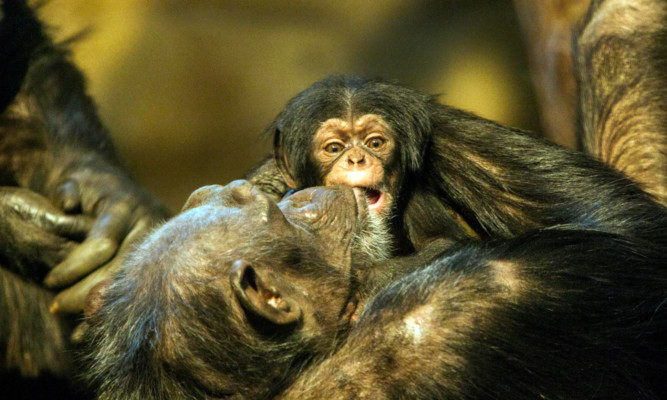Chimpanzees can learn to be kind by experiencing the kindness of others, according to new research by St Andrews University.
The study, published by Nature’s Scientific Reports, offers new evidence of the evolutionary roots of kindness in humans and non-human primates.
The international research project was led by psychologists Professor Andrew Whiten and Dr Nicolas Claidiere of St Andrews University, and Dr Nicola McGuigan of Heriot-Watt University in Edinburgh.
It shows for the first time that kindness in young children and non-human primates such as chimpanzees can be influenced by experiencing and learning from the “prosocial” behaviour of peers.
Contrary to earlier findings, the study indicates that in certain conditions our close primate relatives display similar behaviour to humans.
Evolutionary and developmental psychology Professor Whiten said: “A regard for the welfare of others is seen as a cardinal human virtue.
“By contrast, several recent scientific studies have concluded that the same dispositions are lacking in our closest living primate relatives.
“The results of our research provide the first evidence that both children and chimpanzees share common traits of altruism that are learned as a direct result of experiencing the kindness of others.”
In the new research, Professor Whiten and his colleagues studied and compared the actions of children aged between four and eight years and adults, with those of chimpanzees and capuchin monkeys.
